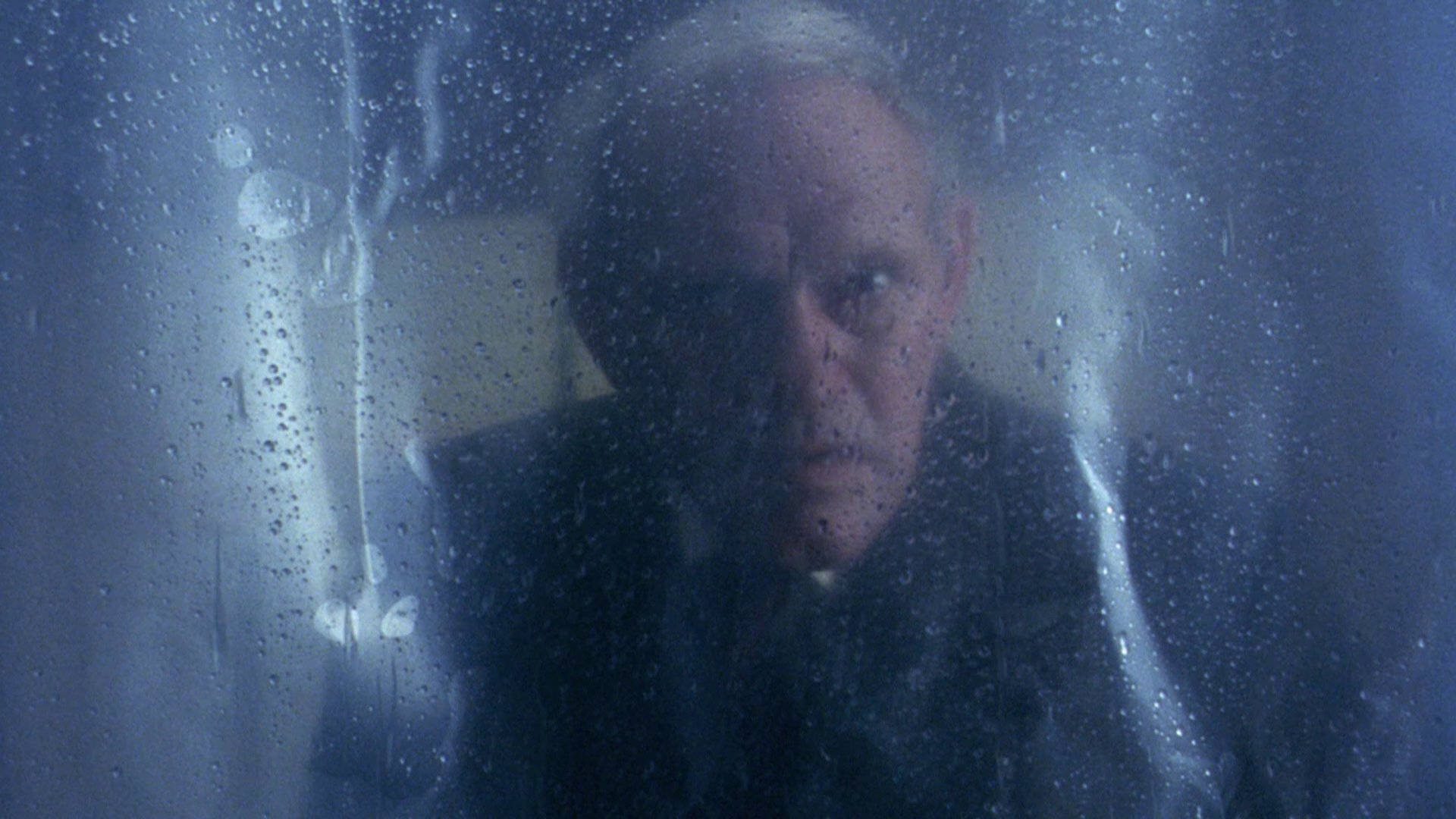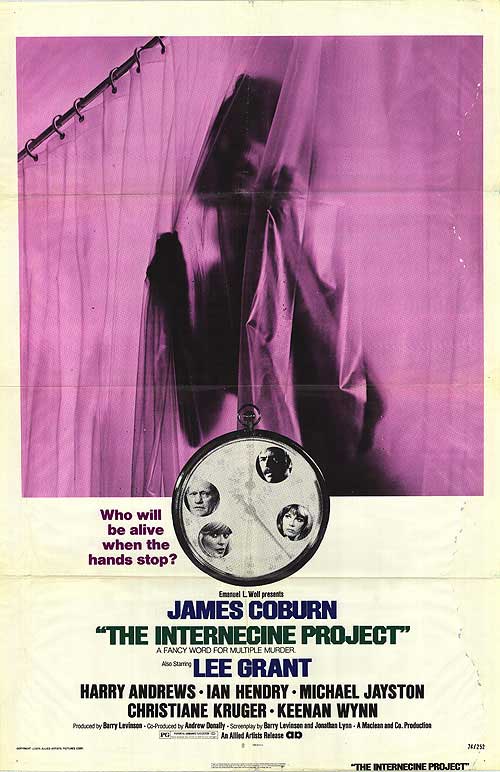
Professor Robert Elliot (James Coburn), an American living in Britain, heads what industrialist E.J. Farnsworth (Keenan Wynn) calls a little C.I.A. all his own: four people whose jobs put them in contact with important businessmen and politicians, and who, for the right price, are happy to pass along the things they overhear. But Farnsworth wants Robert back in the U.S. for an important White House position, and makes it clear that refusal is not an option, forcing Robert to neutralize his little C.I.A. What follows is a complex plan whereby David (Michael Jayston), a scientist in Robert’s employ, is tricked into planting a drug meant to kill Alex the accountant (Ian Hendry), who is going to kill the masseur (Harry Andrews), who is going to kill the prostitute (Christiane Kruger) who will have planted a device meant to kill the scientist later that evening. With none of the four operatives the wiser, the circular murder plot proceeds as Robert waits for a series of phone calls marking their progress. Things get even more complicated when Robert’s old flame Jean (Lee Grant), an American reporter, turns up in London to do a story on Elliot’s rise to political power.
The Internecine Project (1974), a tight little low-budget thriller directed by Ken Hughes (Sextette, Casino Royale), is a charming and sparse affair, and one that gets far less credit than is due. Internecine is frequently referred to as dull, boring, or even unappealing, mostly because so much of the film takes place in Robert’s office as he’s sitting in the low light, waiting for the phone to ring. Jonathan Lynn, a noted television writer who would go on to pen the screenplay for Clue (1985), complains in his book Comedy Rules that his script had been changed without his input and he didn’t like the result. Lee Grant described Internecine as “a really flimsy film” with a script that was only a 16-page outline in her autobiography — interesting, given Lynn’s comment about the script changes — and also a perfectly fair assessment by someone whose character on the surface looks to be just a plot device with fabulous hair.
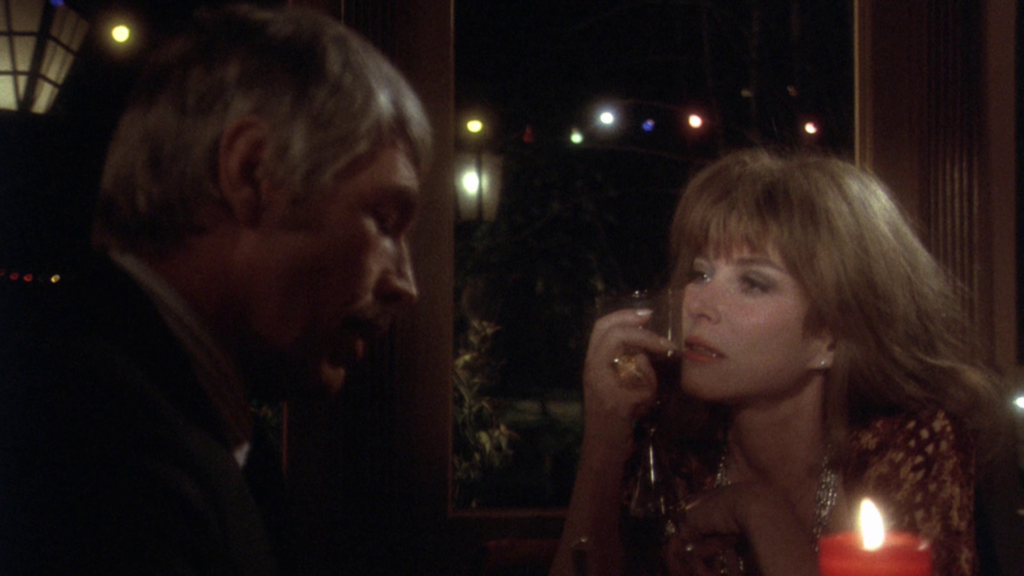 Her hair is pretty great.
Her hair is pretty great.
Jean, however, is a deceptively simple character. She’s there to give Robert some humanity, and also to introduce the political elements of the film, most of which are revealed in the penultimate scene that helps contextualize everything we’ve seen up to then. Mostly, though, she’s needy to the point of being almost repulsive, which can be seen as (and, honestly, probably is) a reflection of gender stereotypes at the time.
But it’s also more than that. The Internecine Project has no heroes, and Jean, by knowing exactly what’s going on and being in a position to expose it, is the closest thing we get to a hero. Wisely, the film makes Jean so weak that the audience recoils; the same is done with Alex, the only person willing to stand up to Robert. We’re as limited in our sympathy for them as Robert is, just as we’re invested in Robert’s plan crazy telephone-based plan working, even though a successful plan would leave four people dead by dawn, and for no good reason.
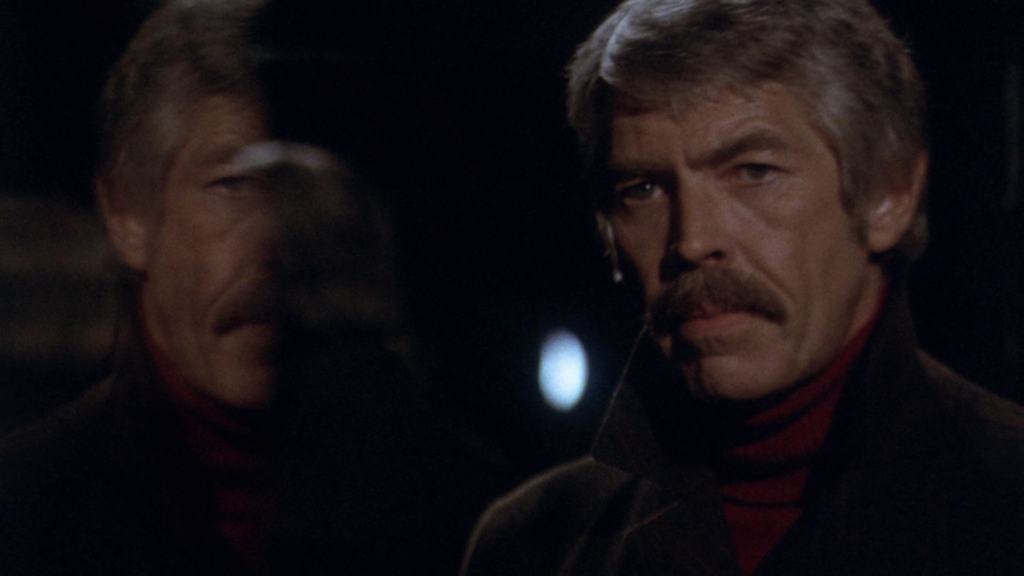
The idea of murderously corrupt men infiltrating the government surely must have seemed old hat by 1974, but Jean’s speech about democracy mixing with a little light fascism in her final scene hits so close to home here in early 2017 that it’s genuinely upsetting, not so much the notion of corruption but the fact that, over 40 years later, we’re still fighting the same fights, and still losing them.
It’s a slow burn of a thriller, a film almost too comfortable with a world where corruption is commonplace and death is met with a shrug. This political thriller wears the mask of a cozy murder mystery, the sunny days and party lights and comfortable wool blend sweaters distracting from the high body count. Internecine is the rare film that can justify its light content, withholding explanations because it trusts the audience to be smart, to not need any hand-holding to understand the plot. The Internecine Project is a quiet little film that is long overdue for a reassessment.
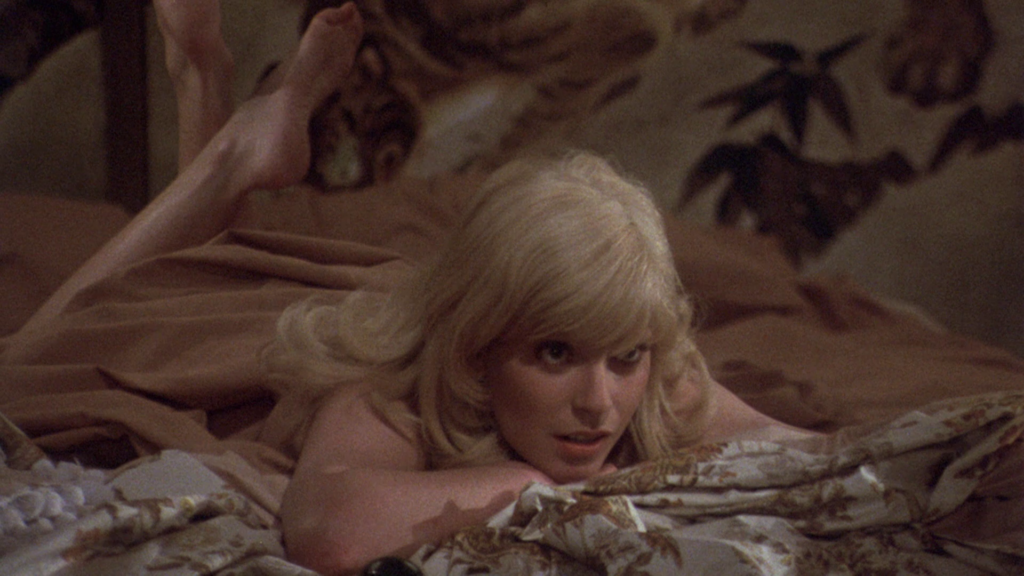
Kino Lorber has just released The Internecine Project on Blu-ray and DVD. The Blu-ray comes with subtitles, and good ones, too, along with an interview with Jonathan Lynn and several trailers. The print used for the release looks its age, with some major grain, discoloration and artifacts in the opening credits sequence, but which resolves after several minutes, thankfully never to return.

